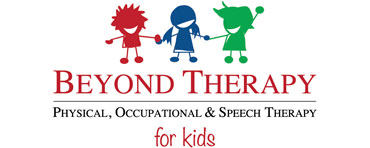What is Pediatric Occupational Therapy?
Many people are surprised to hear that children participate in occupational therapy, because we usually associate the term occupation with work. Our therapists help children be successful in the many “jobs” of childhood, including play, self-care, school performance and social interactions. Developing these skills is critical for transition to the independence required in adulthood. As pediatric occupational therapists, we address many skills needed for success in a child’s daily life.
Benefits
- Improved Fine Motor
- Addresses Sensory Integration
- Enhanced Motor Planning and Coordination
- Improved Self-Help Skills/Activities of Daily Living
- Increased Play & Socialization
- Improved Feeding
- Remediated Visual Perception
- Improved Visual Motor Skills
- Remediated Handwriting Skills
How We Treat
We provide evaluation, intervention and consultation in the following areas:
- Fine Motor
- Sensory Integration
- Motor Planning & Coordination
- Self-Help Skills/Activities of Daily Living
- Play & Socialization
- Feeding
- Visual Perception
- Visual Motor
- Handwriting
Therapy is designed to seem like play to the children, yet the therapist draws upon extensive training in specialty areas to provide challenging therapeutic activities aimed at developing greater capabilities.
What to Expect
Every patient has a unique health history, diagnosis and personal goals. When you come for your first appointment, we will create a personalized treatment plan for you.
When to Arrive
On average, a patient’s first visit lasts about an hour. We typically ask patients to arrive 15 minutes early to sign-in, complete paperwork.
What to Bring
On your first visit, you’ll need to bring your physician referral or prescription (if needed), your insurance card, your primary registration forms, your ID or driver’s license and your co-payment (as applicable).
How it Works
During your first visit, your therapist will do an initial evaluation and discuss your plan of care. The therapist uses this information to set goals for your continued treatment. Your subsequent visits will focus on treatment that is based on your diagnosis and individualized goals.
